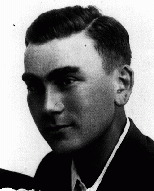You searched for: 买球平台,买球网站,买球官网,世界杯买球网址,【世界杯买球官网∶22kk55.com】网上买球规则,网上买球技巧,网上买球地址,2022世界杯怎么买球,如何买球,【赌球平台推荐∶22kk55.com】网址ZCCDBADDgBkn0CEg
<< Previous | Displaying results 161-170 of 249 for "买球平台,买球网站,买球官网,世界杯买球网址,【世界杯买球官网∶22kk55.com】网上买球规则,网上买球技巧,网上买球地址,2022世界杯怎么买球,如何买球,【赌球平台推荐∶22kk55.com】网址ZCCDBADDgBkn0CEg" | Next >>
-
Chaim Werzbe
ID CardChaim was raised in a Yiddish-speaking, religious Jewish family in Sokolow Podlaski, a manufacturing town in central Poland with a large Jewish community of about 5,000. The economic activities of most of the townspeople were closely tied to those of nearby Warsaw and surrounding farming communities. As a young man, Chaim liked to play chess and was active in a local Zionist organization. 1933-39: Chaim made a living in the grain business. After settling down, he married a widow who was older than he and…
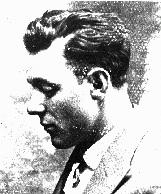
-
Herschel Rosenblat
ID CardHerschel was the youngest of three sons born to Yiddish-speaking Jewish parents. When Herschel was a child, his family moved to Radom, an industrial city which had a large Jewish population. By 1930, Herschel had finished his schooling and was helping in his father's shoemaking business. With the help of a friend, he later found a full-time job as a house painter. 1933-39: Herschel's career as a painter was interrupted for two years when he was drafted into the Polish cavalry at the age of 20. When…
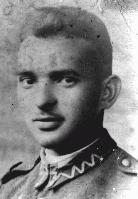
-
Renate Guttmann
ID CardRenate, her twin brother, Rene, and their German-Jewish parents lived in Prague. Shortly before the twins were born, Renate's parents had fled Dresden, Germany, to escape the Nazi government's policies against Jews. Before leaving Germany to live in Czechoslovakia, Renate's father, Herbert, worked in the import-export business. Her mother, Ita, was an accountant. 1933-39: Renate's family lived in a six-story apartment building along the #22 trolley line in Prague. A long, steep flight of stairs led up to…
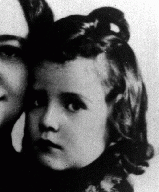
-
Rene Guttmann
ID CardRene, his twin sister, Renate, and their German-Jewish parents lived in Prague. Shortly before the twins were born, Rene's parents had fled Dresden, Germany, to escape the Nazi government's policies against Jews. Before leaving Germany to live in Czechoslovakia, Rene's father, Herbert, had worked in the import-export business. His mother, Ita, was an accountant. 1933-39: Rene's family lived in a six-story apartment building along the #22 trolley line in Prague. A long, steep flight of stairs led up to…
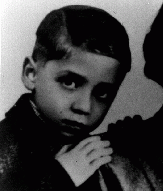
-
Mina Beker
ID CardMina, born Mina Friedman, was the youngest of four daughters born to a Jewish family in the Lithuanian town of Jonava. At the age of 18, Mina married Osser Beker, a lumber dealer. The couple settled in Jonava where Mina worked as a seamstress. The Bekers had two sons and two daughters, but their oldest son died in a childhood accident. 1933-39: Mina's son Abe attended a Jewish religious school in Jonava. But since Mina had received an extensive Jewish education, she decided to teach her daughters at home.…
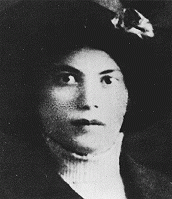
-
Emma Freund
ID CardThe second oldest of six children, Emma was raised by observant Jewish parents in a small town in southwestern Germany and they settled in the industrial city of Mannheim after World War I. There she had two children, a son in 1924, and a daughter in 1930. Emma helped her husband in his business. 1933-39: After the Nazis came to power, Emma's husband lost his business. Her sister Linnchen immigrated to South Africa, and the Nazis deported her brother Arthur to Dachau. When the Nazis burned down the local…
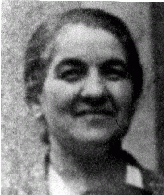
-
Robert Freund
ID CardThe second oldest of five children, Robert was raised by Jewish parents in a suburb of Mannheim. He was wounded while serving in the German army during World War I. Married after the war and making his home in the industrial city of Mannheim, Robert and his wife Emma raised two children, while he made a living as an interior decorator. 1933-39: The Nazis came to power in 1933; Robert's children were forced out of public school and he lost his business. When the Nazis burned down the local synagogue and…
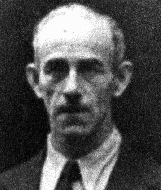
-
Ruth Warter
ID CardRuth lived in Uzliekniai, a village in the Memelland, a region in southwestern Lithuania ruled by Germany until 1919. An avid reader, Ruth was distressed by news of postwar political turmoil. In 1923, when Uzliekniai became part of Lithuania, she joined the Jehovah's Witnesses. She married Eduard Warter, another Jehovah's Witness, in 1928. They had four children over the next five years. 1933-39: Ruth was busy raising her children and making sure they did their Bible studies. On March 22, 1939, the German…
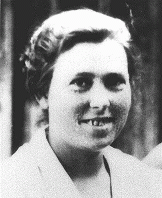
-
Gisha Galina Bursztyn
ID CardGisha was raised by Yiddish-speaking, religious Jewish parents in the town of Pultusk in central Poland. She married in the late 1890s and moved with her husband, Shmuel David Bursztyn, to the city of Warsaw, where Shmuel owned and operated a bakery on Zamenhofa Street in the city's Jewish section. In 1920 the Bursztyns and their eight children moved to a two-bedroom apartment at 47 Mila Street. 1933-39: By 1939 six of Gisha's children were grown and had left home: her eldest daughters had married, and…
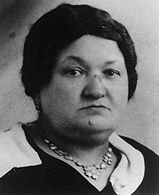
-
Naftali Saleschutz
ID CardNaftali was the youngest of nine children born to devout Hasidic Jewish parents living in Kolbuszowa. In the Hasidic tradition, he wore a long black coat and shoulder-length earlocks. He first faced antisemitism in the second grade when his teacher cut one earlock off each Jewish boy. Naftali escaped the teacher's shears, and his father, a respected merchant, had the teacher suspended. 1933-39: On September 9, 1939, the German army invaded Naftali's town and decisively defeated a small contingent of…
